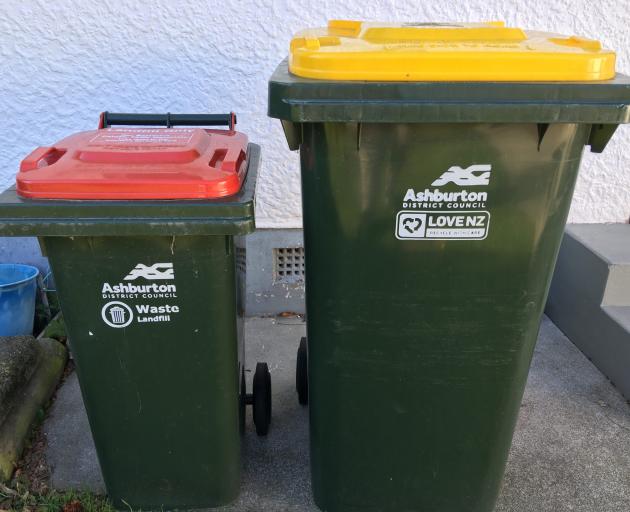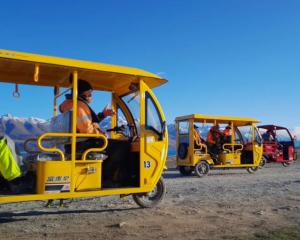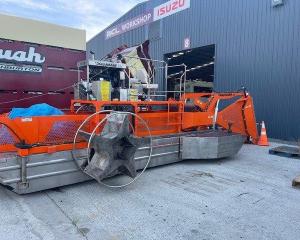
The Ashburton District Council, like Christchurch City Council, is now only collecting plastics 1, 2 and 5 in its yellow recycling bins. Glass is recycled in the green crate.
Staff have been walking ahead of contractors checking out recycling bins for compliance since the new system started on August 1.
Between August 12 and 21, they rejected 485 bins, sending households a "very poor effort" letter and noting their address for another audit.
Another 234 bins were partially rejected, where non-recyclable items were taken out and put into mailboxes. These households went sent a letter saying the items that were removed couldn’t be recycled.
Households who had followed the new rules were sent "well done" letters.
Council infrastructure services manager Neil McCann said photos of the rejected bins, along with their address and reasons for rejections, were logged for auditing and tracking.
"Our sorting facility has advised there have been improvements from previous audits, however, we are still at 20 per cent contamination."
The biggest offending items found in recycling were bottles with caps (caps are not allowed) and takeaway packages (also not allowed).
McCann said the council hoped to encourage better recycling by performing bin audits and educating residents.
Contractors reported some of the larger and very unacceptable items found in wheelie bins were a heat pump, drier, oven, large toys, lots of clothing, lots of glass, lots of nappies and women’s sanitary pads.
Each truckload of recycling rejected by the sorting facility in Christchurch costs $1064 to send to Kate Valley.
Similar action was taken by Christchurch City Council earlier this year after it said garden waste and other rubbish in the city's yellow wheelie bins was threatening the viability of the recycling operation.














